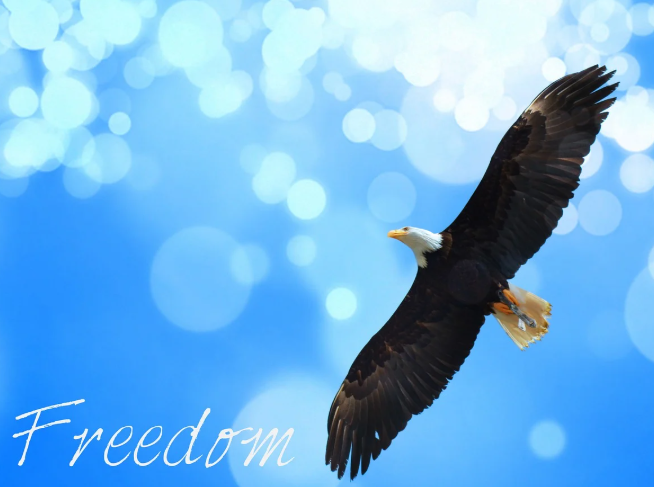EDITOR’S NOTE: Given the state of federal government and the upcoming 4th of July holiday, I took a prompt that NPR sent out to readers “What does Freedom Mean to You?” and sent it to the couple dozen Pioneer contributors. We’ll share those thoughts with readers over the next several days.
We’ll start off with Neal Lemery’s “Words of Wisdom” – as it seems that I “read his mind” and he was already working on this is what the “muse” provided. And you dear readers, please share with us – “What does freedom mean to you?” Share it words, poetry, photos, art … I think we all need to remind ourselves about what freedom truly means. Send your contributions to editor@tillamookcountypioneer.net
On Freedom
By Neal Lemery
“Freedom, in its simplest form, is the power or right to act, speak, or think as one wants without hindrance or restraint. It’s often associated with liberty and autonomy, signifying the ability to make choices and act without coercion. In a broader sense, freedom can encompass various aspects, including freedom of speech, religion, and the press, as well as freedom from oppression and want.” –Wikipedia
We live in society, living collectively, in a structured existence with certain expectations, common rules of behavior and conduct, and common beliefs on how we should behave. We pride ourselves on being free.
Our common idea of who we are as a community, as a nation, is that none of us are “free” to act as we individually desire, to be anarchists. Instead, each of us has agreed to be part of the tribe, grouped together with common purposes and expectations, and obligations of citizenship.
This acceptance of our “social contract” was extensively discussed during the Age of Enlightenment of the 18th Century, and became the framework for the rise of democratic and republican institutions. It was the intellectual foundation of the American Revolution, a rejection of the tired social structure of monarchies and the divine right of kings. Abandoning the autocratic structures of feudalism, reformers advocated for giving voice to individualism and government based on popular, educated debate and majority rule. The Virginia Bill of Rights, the Declaration of Independence, and the US Constitution emerged from such thought and debate.
That debate of our fundamental common principles continues today, as we refine and reshape our society and our governmental and economic structures. We owe it to ourselves and the entire community to respect and nurture these conversations, and to be meaningful, informed parties to those conversations. Such is the labor of a freedom-loving people.
True freedom is not anarchy, and does not thrive without a form of government that respects both individual voices and a collective acceptance of community good. The implementation of individual rights and collective accountability often seem to be conflicting, but in that, both enlightened ideals will thrive and nurture both individual freedoms and society as a whole.
Our disagreements, our debates, our differences of opinions, our seemingly competing values are actually our strengths as a society. Vigorous and informed debates and conflicts sharpen our minds and strengthen our respective opinions and viewpoints. The inquisitive mind and critical thinking are some of our greatest assets. In engaging in vigorous debate, we are truly fulfilling our respective obligations within our social contract, by being educated and active citizens, speaking our minds and giving deep consideration to the views and opinions of others.
Freedom isn’t being able to do whatever I please, or say whatever thought pops into my head. Instead, I have obligations, part of the duties of being a free person, to delve into issue, research my facts, develop sound logical arguments, and engage in dialogue that is respectful of others, informed, and also open to change and reconsideration.
As a citizen, as a person who honors the concept of freedom, I am fulfilling my obligations as a citizen to be informed, to be questioning of my own opinions and the opinions of others, and to participate in the public forum with respect for others and the willingness to change my own views.
Part of freedom is the duty to be a lifelong learner, a continuing gatherer of facts, and to engage in meaningful, respectful debate of the issues of the day. This is good citizenship. And this is being an endorser of the principle of a free and just society.
Each of us is obligated to be a good and responsible member of the tribe, the village, the state, and the nation. By revolting against the king, we have taken on the tasks of governing ourselves, through healthy, vigorous democratic institutions. Each of us has duties to work to strengthen and protect our democratic institutions, “to promote the general welfare and provide for the common defense.”


.png)